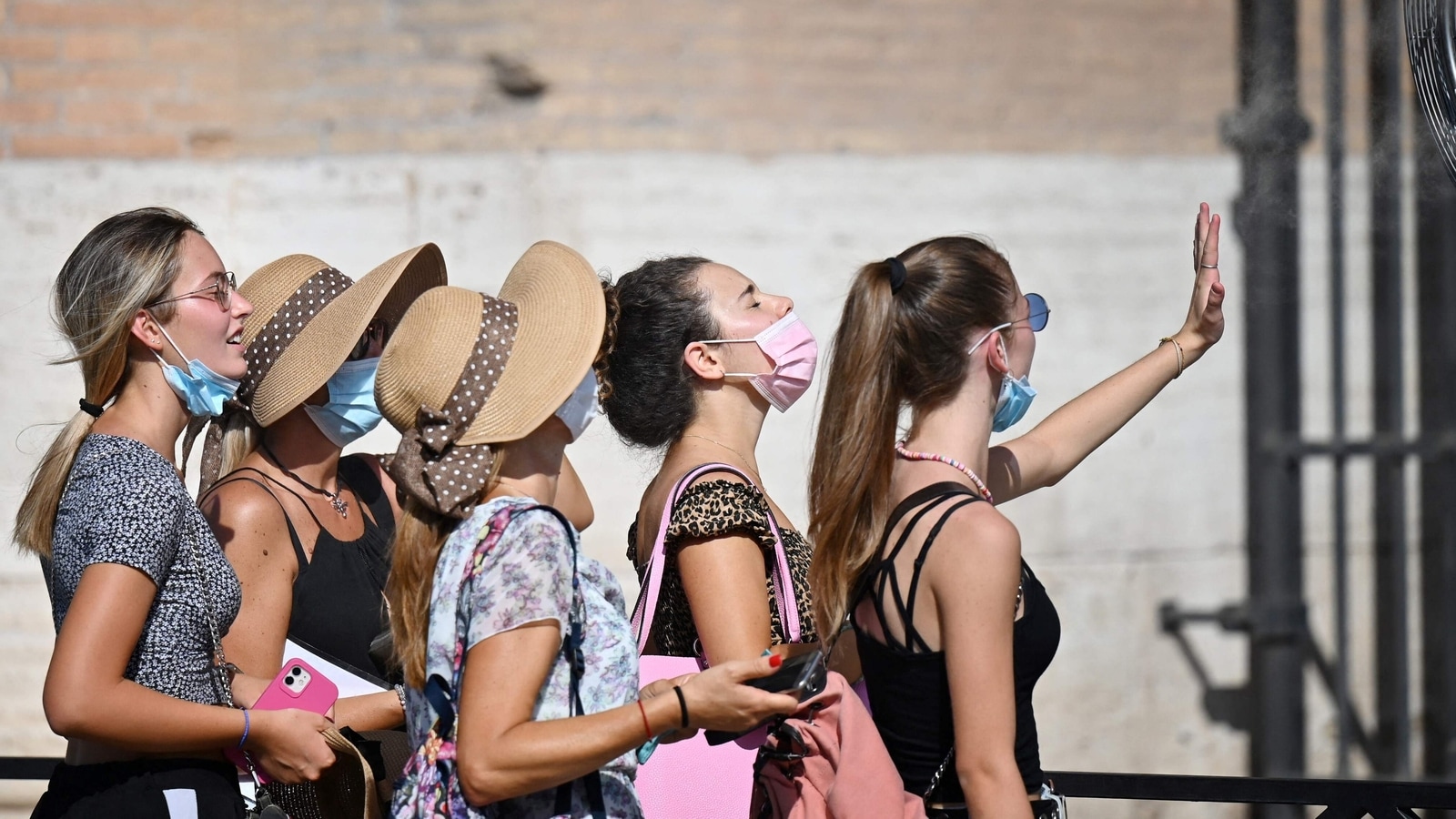IPCC Climate Change Report 2022: 5 Key Takeaways- adapt or die
IPCC says climate change dangers aren’t far off in the future but “right here, wherever you live.”

With attention fixed on the war raging in cjust days after an invasion by Russia, there's a greater-than-normal risk that the latest climate change report from the coalition of top scientists on the UN-backed Intergovernmental Panel on Climate Change will go overlooked. Which is, in a way, something that the hundreds of authors worried about in compiling this 3,500-page report: Among the worst case scenarios analyzed for future warming is a world where “a resurgent nationalism, concerns about competitiveness and security, and regional conflicts” make global collaboration nearly impossible.
Released today, Climate Change 2022: Impacts, Adaptation and Vulnerability focuses on the interplay that connects warming-driven impacts such as heat waves and floods to ecosystems and human society. The IPCC scientists determine that some impacts are already “irreversible” and that as many as 3.6 billion people now live in settings that are “highly vulnerable to climate change.”
The report characterizes adaptation measures so far as halting and insufficient and makes the consequences of inaction wrenchingly clear. The world isn't reducing greenhouse-gas emissions fast enough, which makes adapting to climate change more critical and also more difficult. Nations are moving too slowly to learn to live with destructive effects, leading to human hardship — not just in the future, but visible right now.
Here are five key arguments from the latest IPCC report on climate adaptation, or how humanity learns to live with global warming temperatures:
1. There's no more waiting for climate change
Climate-related impacts are already “widespread” and, in some cases, “irreversible,” according to the IPCC. Heat-related human mortality has risen. Extreme weather events and temperatures have exposed millions of people to food insecurity and malnutrition. Agriculture, tourism and other climate-sensitive sectors are seeing losses. Fisheries are in decline in some regions. Migration tied to climate shifts is rising.
The previous version of this report, from 2014, spent a lot of ink on projected impacts; the new report noticeably devotes pages and pages to events that have already occurred. “The whole idea that this is a distant issue in space or time or relevance? [The new IPCC] report shoots that right down,” said Katharine Hayhoe, chief scientist at the Nature Conservancy. “It says: It is right here, wherever you live. It is right now, not in the future, and it is affecting every aspect of our lives.”
2. ‘It is now adapt or die'
Rich countries that are most responsible for carbon-dioxide pollution have the most resources to prepare for its effects, whether or not they choose to do so. Poorer countries with little to no responsibility for climate change face the brunt of the assault — and aren't receiving promised help from the developed world. The divide also holds within countries; low-income and marginalized communities in prosperous nations are far more vulnerable than their immediate neighbors.
“It may sound hyperbolic to you but my take is that for many vulnerable countries, it is now adapt or die,” said Patrick Verkooijen, chief executive officer of the Netherlands-based Center on Global Adaptation. “The time for large-scale investments in adaptation is absolutely now. Rich countries can no longer leave the most vulnerable nations out to dry.”
3. The clock is ticking
Scientists have a word that describes what happens if nations miss their pollution limits and the world heats up past 1.5°C: “overshoot.” Implicit in this idea is that by using nature or technology to draw down greenhouse-gas levels, people can return the temperature back below the limit. The new IPCC report warns that even if nations are able to do that — a big if — there will still be “additional severe risks,” some of which are “irreversible” compared to scenarios without overshoot. Up to 14% of land-based animal species are at risk of extinction once the 1.5°C threshold is passed, the IPCC warned.
This fact informs the physical limitation to climate adaptation and shapes the IPCC's guidance to reduce emissions as quickly as possible. Cuts today are much more valuable than the same cuts in five or 10 years.
4. What's needed beyond cutting emissions
For emissions cuts, the task is clear. The world needs to reduce carbon dioxide emissions to zero by midcentury and halve 2010 levels by 2030, the IPCC reported in 2018.
But since some further warming is unavoidable, nations' preparedness matters — a lot. Effective adaptation measures are critical. The problem is that efforts so far tend to be fragmented and short-term, according to the IPCC. Plus, adaptation efforts are often underfunded. And as warming increases, their effectiveness will go down.
What might the world look like after 2°C of warming above pre-industrial levels? “That question can't be answered unless you also tell me, well, what are we assuming about the condition of society?” said Brian O'Neill, director of the Joint Global Change Research Institute in Maryland and a chief author of the report's chapter on future risks.
5. Not enough is being done
The rate of global emissions growth had plateaued in the years before the pandemic, and inexpensive renewable power makes it possible to sharply curtail emissions. But atmospheric CO₂ is not falling yet and, as the report makes clear, societies are not pursuing anything resembling the far-reaching changes they will need to in order to protect themselves.
“Every fraction of a degree matters when it comes to impacts of climate change,” said Stephanie Roe, global lead scientist for climate and energy at the environmental nonprofit WWF. “So we can still reduce the effects or the impacts by effectively deploying adaptation measures.”
Eric Roston writes the Climate Report newsletter about the impact of global warming.
Catch all the Latest Tech News, Mobile News, Laptop News, Gaming news, Wearables News , How To News, also keep up with us on Whatsapp channel,Twitter, Facebook, Google News, and Instagram. For our latest videos, subscribe to our YouTube channel.































